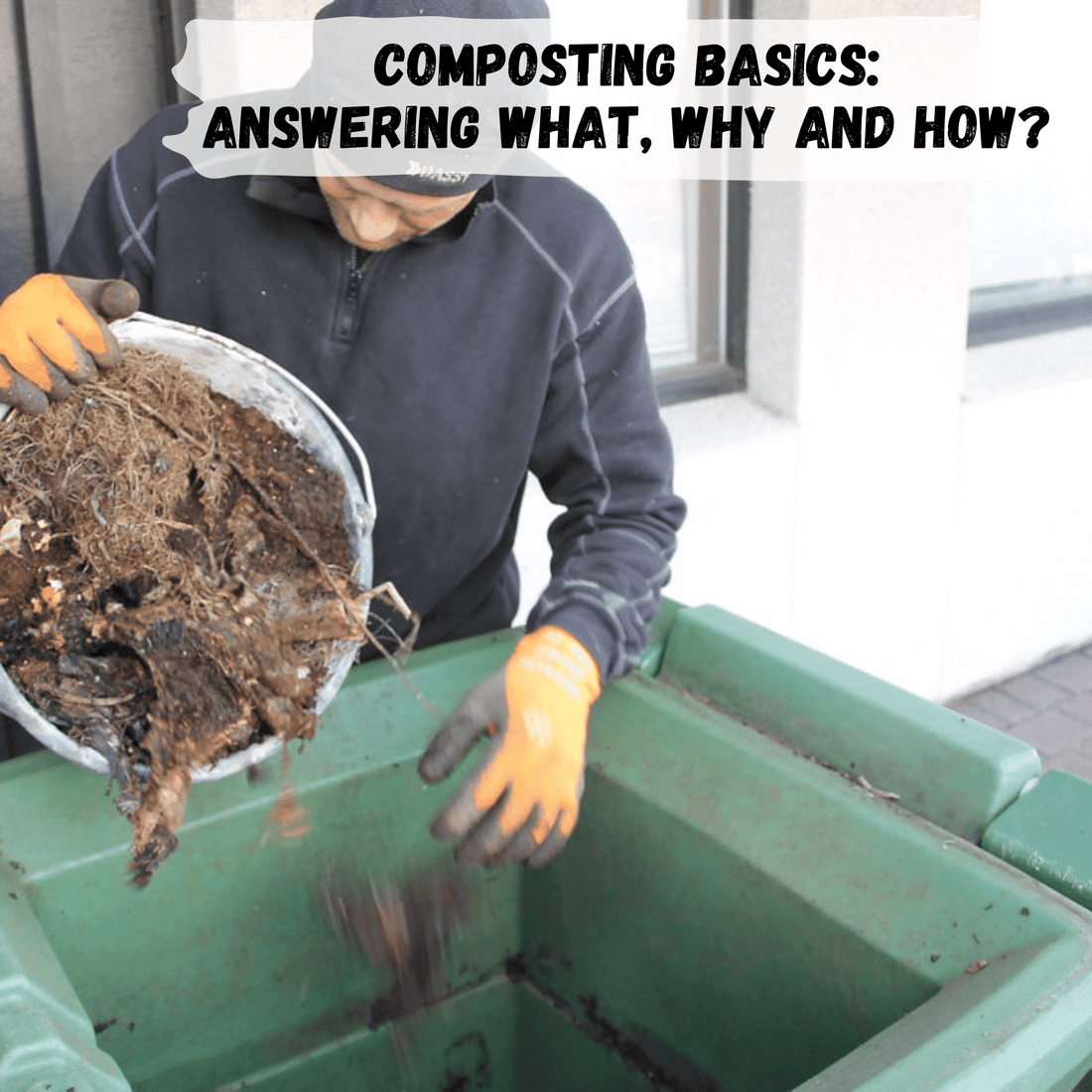
Composting and vermicomposting are closely related, so if you’re practicing the latter, it’s probably worth looking into the former, because the two have a lot in common and can have a symbiotic relationship.
In this blog, we want to discuss composting and go over its basics, so by the end of the blog you know what the process is, its benefits, and how you can go about starting your own compost bin (or heap).
What is composting?
Composting is the process of turning vegetable matter and manure into compost. Compost, in turn, is defined as a mixture of ingredients used to fertilize and improve the soil.
So in simpler words, compost is organic fertilizer made from home and garden waste, and composting is the process of making this fertilizer via natural processes.
The benefits of composting
There are several benefits of composting, and applying compost. Let’s take a look at a few:
- Makes use of waste material from your garden
- Creates a safe space for little critters to live in
- Increases the productivity of your garden
- Encourages the production of beneficial bacteria and fungi
- Reduces your dependence on fertilizers while improving crop yield
- Enriches soil and helps in moisture retention
- Helps suppress weeds, pests and plant diseases
Composting basics: How to compost at home

Composting is fairly simple. Of course, you can complicate it and use special techniques and methods to speed up the process, but in a nutshell, it’s just layering greens and browns, and keeping the pile or bin aerated and watered till all the material rots down. This should take about a year.
Greens include things like vegetable scraps, grass clippings, plant trimmings, and manure, whereas browns include things like paper, cardboard, hay, dead leaves and twigs.
You can compost most kitchen and garden waste (except perhaps for cooked food, dairy and meat – to keep your pile clean and vermin-free), but you do need to be careful about the ratio you put the things in. You should usually aim for your browns to outweigh the greens, because an excess of greens will make for a soppy, wet, stinking pile. Layer browns and greens, and give it some compost accelerator like worm tea or urine, and you’re good to go!

